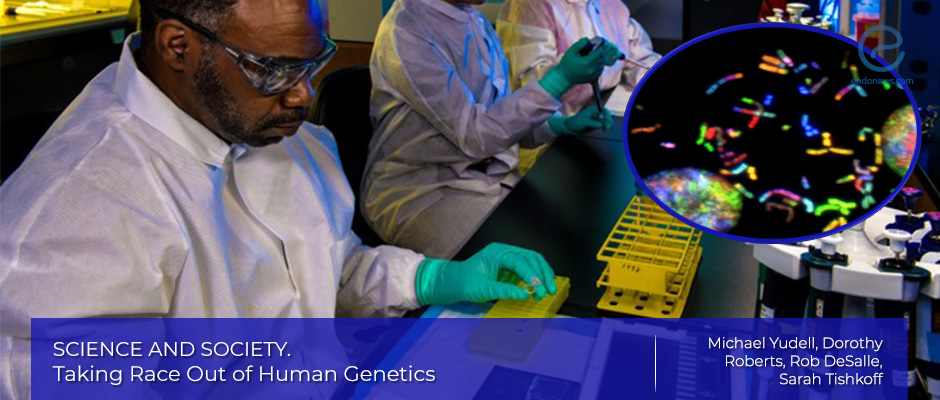Role of race in science
Jun 23, 2020
Taking race out of human genetics
Key Points
Highlights:
- The race is still used as a biological category in genetic research, which is “problematic at best and harmful at worst".
- The authors demonstrate the issues associated with the use of race as a biological category and provide suggestions to resolve this paradox and improve the research on human genetic diversity.
Importance:
- It is a crucial, well-written piece to emphasize the importance of the scientific language to influence people and the necessity to phase out the racial terminology in biological sciences.
Key Results:
- The race is not the correct way to elucidate human genetic diversity.
- It is important to remember that scientific language matters since science can be a powerful tool to influence society.
- “Phasing out racial terminology in biological sciences would send an important message to scientists and the public alike: Historical racial categories that are treated as natural and infused with notions of superiority and inferiority have no place in biology”.
Lay Summary
Although genome pioneers and social scientists agreed on not using the race as a variable in genetic research during human genome sequencing time, the use of race as a biological category has risen since.
Traditionally ‘race’ has been used as a taxonomic categorization based on common hereditary traits such as skin color in order to interpret the link between ancestry and our genes. However, in this article entitled "Taking Race Out of Human Genetics", published in February 2016 in ‘Science’, Yudell, et al. rightfully point out that the use of race in human genetic research is “problematic at best and harmful at worst”.
The use of the race concept in biological research was a source of debate in the past and it continues to be so today. One group state that significant genetic information can be gathered using race claiming that the racial difference is the closest representation of human diversity. Others, on the other hand, argue that using race is not the correct way to elucidate human genetic diversity. Furthermore, even race-based predictions in clinical settings would be problematic since there is an increase in “prevalence of admixture” across populations. Numerous scientific articles emphasized several problems:
- A shift to “focus on racism” instead of the race during the analysis of data
- Scientists using their own interpretation of racial categories instead of using the assigned ones
- Random reporting of racial/ethnic variables in genetic research
Research points out that racial assumptions do not reflect the biological status since commonly defined racial groups are genetically heterogeneous. For instance, hemoglobinopathies can be misdiagnosed since sickle-cell is seen as a “Black” disease, and thalassemia is seen as a “Mediterranean” disease. Cystic fibrosis, which is considered a “white” disease is not diagnosed sufficiently in populations of African ancestry. More importantly, general misconceptions in terms of using race in genetics would feed the racist beliefs.
In conclusion, although the first call out for biologists do not use race for elucidating genomic diversity in humans was made for more than 50 years ago, the issue remains valid as scientists both believe race to be a tool for genomic research and believe that it is a nonsufficient marker of diversity. The authors challenge this paradox and propose that “scientific journals and professional societies should encourage the use of terms like “ancestry” or “population” to describe human groupings in genetic studies and should require authors to clearly define how they are using such variables”. Scientific language matters since science is a powerful tool to influence society.
The authors conclude their essay with a powerful message: “Phasing out racial terminology in biological sciences would send an important message to scientists and the public alike: Historical racial categories that are treated as natural and infused with notions of superiority and inferiority have no place in biology”.
Research Source: https://pubmed.ncbi.nlm.nih.gov/26912690/
human genetics racial categories genetic diversity

